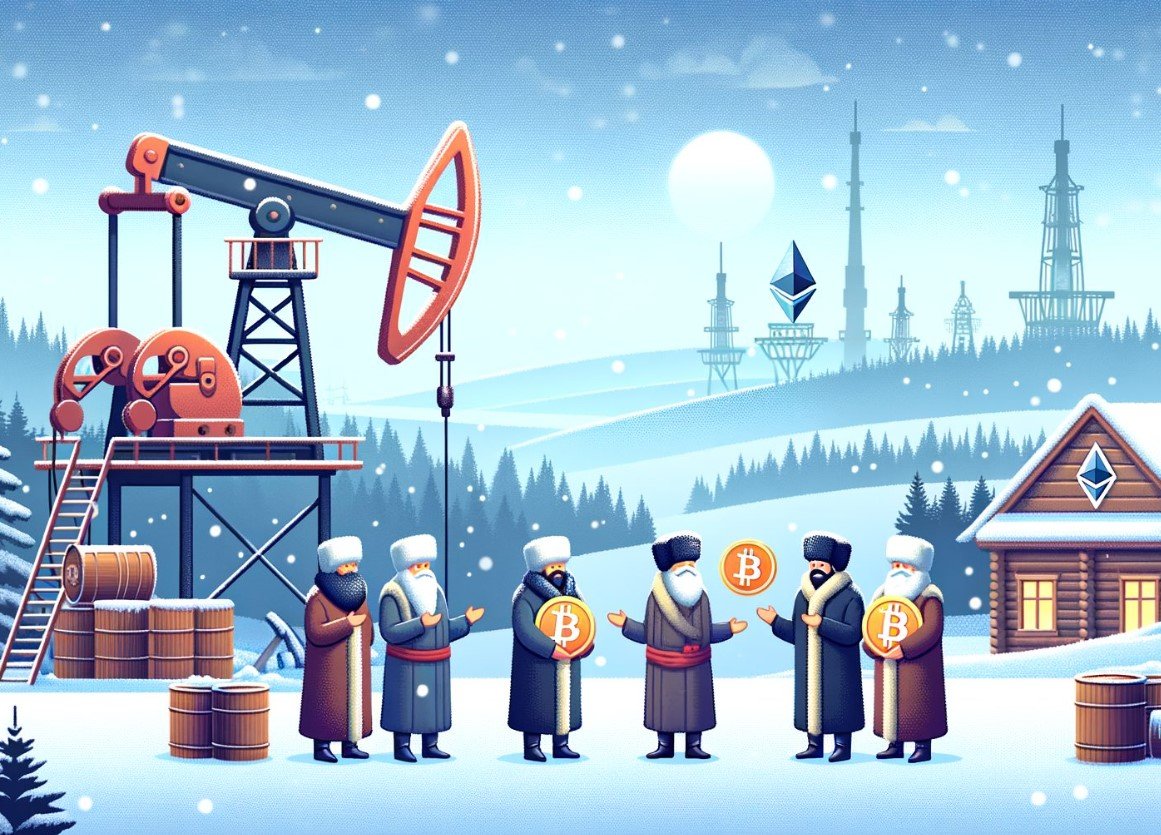News
Big Investors Are Quietly Pushing Bitcoin and Ethereum Higher
A new wave of major investors is making its presence felt in the cryptocurrency market, and it’s already having an impact. While individual traders should make decisions based on their own strategies, some market movements are too big to ignore. A particular trend in Bitcoin (BTC) and Ethereum (ETH) accumulation is beginning to shape their prices, and it’s tied to a geopolitical shift with major implications.
How Sanctions Are Driving Bitcoin and Ethereum Demand
The global nature of cryptocurrencies means they are used in financial transactions across nearly every major economy. While legal exchanges exist in most developed markets, digital assets like Bitcoin and Ethereum are also being used in shadowy transactions, particularly in countries facing economic sanctions.
Russia’s oil trade, valued at $192 billion in 2024, has become a major factor in this dynamic. Due to Western sanctions, direct sales in the ruble, yuan, or rupee have become increasingly difficult. Instead, businesses are turning to Bitcoin and Ethereum to bypass these restrictions.
- Companies in India and China buy oil using local currency.
- Middlemen convert the payments into cryptocurrencies.
- Russian oil firms receive Bitcoin or Ethereum, then liquidate them for rubles.
This workaround allows trade to continue without direct violations of sanctions at the initial exchange level. While the U.S. and EU have sanctioned some Russian crypto exchanges, alternatives continue to emerge, ensuring that the demand for Bitcoin and Ethereum remains high.
The Scale of Crypto Transactions in Russian Oil Sales
The extent to which Bitcoin and Ethereum are used in Russian oil transactions is difficult to quantify precisely. However, recent reports suggest that billions of dollars worth of crypto are moving through channels linked to sanctioned entities. The impact on price trends is already visible.
| Cryptocurrency | Market Cap | 52-Week Range |
|---|---|---|
| Bitcoin (BTC) | $1.6T | $49,221 – $108,785 |
| Ethereum (ETH) | $233B | $1,791 – $4,089 |
This sustained buying pressure is likely to keep crypto prices elevated, at least as long as Russia continues to rely on this method for trade settlements.
A New Era for Bitcoin as a Sanctions Evasion Tool
Bitcoin’s decentralized nature makes it a favored asset for transactions that bypass traditional financial oversight. Unlike stablecoins, which are often issued by centralized entities that can freeze accounts under government orders, Bitcoin operates without such constraints. This feature is now being tested at a massive scale as Russian oil transactions increasingly rely on the network.
Ethereum is also seeing increased usage, though to a lesser extent. Unlike Bitcoin, Ethereum’s development is overseen by the Ethereum Foundation, which could take steps to limit its use in these transactions. This means that while Bitcoin’s role in the sanctions trade could persist, Ethereum’s participation might be more short-lived.
The Risk of a Sudden Reversal
Despite the apparent support for Bitcoin and Ethereum prices, investors should be wary of potential volatility. Sanctions-related demand is not a stable foundation for long-term growth. Several factors could disrupt this trend:
- A sudden shift in Russia’s trade policies.
- Stricter enforcement of crypto-related sanctions.
- Increased scrutiny from international financial regulators.
Furthermore, the possibility of a crackdown on crypto exchanges facilitating these transactions could lead to a sharp decline in demand. Investors considering exposure to Bitcoin and Ethereum should be mindful of the risks tied to geopolitical developments.
What This Means for Investors
The current trend highlights one of Bitcoin’s core value propositions: its resistance to centralized control. While Ethereum may not benefit as much due to its more structured governance, Bitcoin’s role as a sanctions-evading currency reinforces its appeal as a financial asset that operates beyond government oversight.
However, the sustainability of this demand remains uncertain. Traders should be cautious about basing investment decisions solely on this geopolitical dynamic, as it could change rapidly. The pressure on prices may last as long as sanctions remain in place, but once the landscape shifts, the consequences could be unpredictable.















